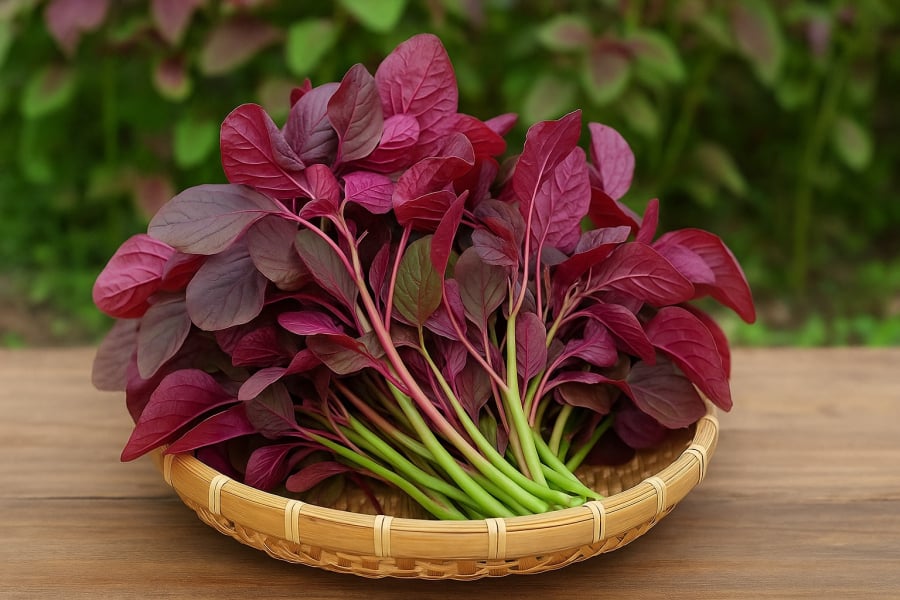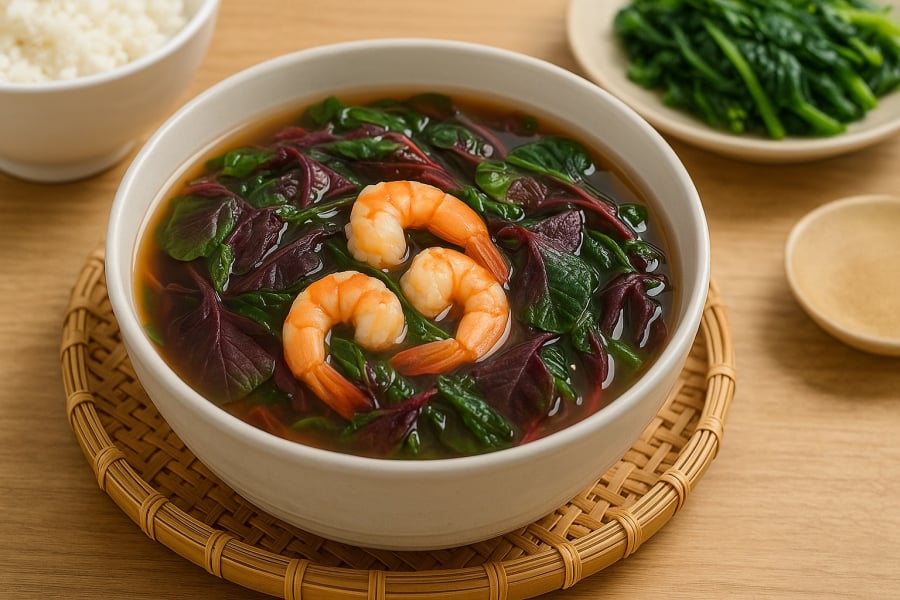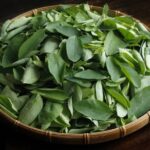Amaranth: A Plant-Based Source of Iron That Rivals Red Meat
According to the National Institute of Nutrition, 100g of amaranth contains approximately 5.4mg of iron, whereas the same amount of beef provides only 2.6mg. This makes amaranth one of the most iron-rich vegetables, making it ideal for those with anemia, pregnant women, and women during their menstrual cycle.
However, plant-based iron (non-heme iron) is less easily absorbed than iron from animal sources. To enhance absorption, combine amaranth with vitamin C-rich foods such as oranges, guava, or tomatoes.

Benefits for the Liver, Heart, and Digestive System
Amaranth is not only rich in iron but also packed with vitamins and minerals, including vitamins A, C, K, and B6, as well as calcium, potassium, and fiber. These nutrients offer the following benefits:
- Cooling and liver-cleansing: Amaranth has a cooling property that helps detoxify the liver, reduce internal heat, and promote clear skin by combating acne.
- Cardiovascular support: Potassium regulates blood pressure and lowers the risk of cardiovascular diseases.
- Digestive aid: The fiber in amaranth stimulates intestinal peristalsis, preventing constipation and promoting a healthy digestive system.
The “Longevity Vegetable” Treasured in China
In China, amaranth is known as the “longevity vegetable” and is highly regarded for its nutritional value. In Traditional Chinese Medicine, amaranth is believed to possess a sweet flavor and a cooling nature. It is used to clear heat, detoxify the body, promote urination, and exert antiseptic effects. The Chinese believe that regular consumption of amaranth contributes to a longer life and prevents various ailments.

Precautions When Consuming Amaranth
- Individuals with kidney stones: Amaranth contains oxalates, which can contribute to the formation of kidney stones.
- People with gout: The purine content in amaranth may elevate uric acid levels in the blood, aggravating gout symptoms.
- Diarrhea sufferers: Amaranth’s cooling nature may exacerbate diarrhea.
Delicious Amaranth Dish Suggestions
- Amaranth and Shrimp Soup: A refreshing and nourishing dish that helps cool the body.
- Garlic Stir-fried Amaranth: A simple and nutritious dish that retains most of the vegetable’s benefits.
- Amaranth and Beef Porridge: Suitable for anemia, children, and the elderly, this porridge is a hearty and healthy meal.
Conclusion
Amaranth, despite its humble appearance, is a vegetable packed with exceptional nutritional value. With its high iron content and abundance of essential vitamins and minerals, amaranth not only boosts iron levels but also supports liver, heart, and digestive health. Include amaranth in your daily diet to nourish your body and promote overall wellness.





































